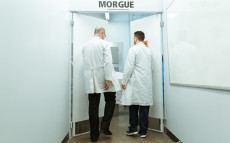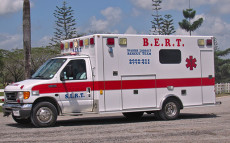- pathfindersAI
- Job Profile
Detectives and Criminal Investigators
Summary
Detectives and Criminal Investigators: A Career Insight
What They Do
Detectives and criminal investigators are pivotal figures within the justice system, tasked with unveiling the truth behind crimes and apprehending those responsible. Operating as detectives, they delve into complex cases involving everything from theft to homicide. As criminal investigators, their duties span collecting evidence, interviewing suspects and witnesses, and collaborating with other law enforcement agencies. Their ultimate goal lies in solving crimes, ensuring justice is served, and safeguarding the community. Their work often involves extensive research and analysis, demanding an investigative mindset and a relentless drive for clarity and truth.
Job Responsibilities
The responsibilities encompassing the role of detectives and criminal investigators are vast and varied. Their primary duties include gathering and analyzing evidence, conducting thorough interviews, and preparing detailed reports for use in court proceedings. Additionally, they are responsible for maintaining meticulous records, surveilling suspects, and ensuring the security of crime scenes. Their work extends to presenting findings to district attorneys, testifying in court, and participating in stakeouts. The role necessitates collaboration with a multitude of law enforcement bodies and demands adherence to legal protocols and ethical standards.
Essential Skills
To excel as a detective or criminal investigator, one must acquire and refine a diverse set of skills. Strong analytical abilities are paramount, enabling individuals to piece together disparate pieces of information to form a coherent narrative. Attention to detail is critical, ensuring no piece of evidence is overlooked. Effective communication skills, both written and verbal, are essential for interviewing subjects and presenting findings. Furthermore, critical thinking and problem-solving abilities facilitate swift and accurate decision-making. Physical fitness and endurance are also important, as the role can involve physically demanding activities and irregular hours.
Educational Pathways
The journey to becoming a detective or criminal investigator typically begins with obtaining a foundational education in a related field. Aspiring individuals often pursue degrees in criminal justice, criminology, or forensic science. Many programs offer coursework tailored to developing investigative skills, including classes on criminal law, ethics, and forensic psychology. Additionally, individuals may benefit from internships or work experiences with law enforcement agencies to gain practical insights and hands-on experience. Advanced positions may require further education, such as a master's degree or specialized training in areas like cybercrime or forensic accounting.
Career Prospects
The career prospects for detectives and criminal investigators are robust, with opportunities extending across local, state, and federal levels. Employment in this field promises a diverse range of specialized roles, including narcotics, homicide, fraud, and cybercrime investigations. The job outlook for detectives and investigators is expected to grow steadily, driven by ongoing societal needs for safety and justice. Compensation in this field varies by location and expertise, but generally, it offers competitive salaries and benefits. Moreover, the role promises significant job satisfaction for those driven by a sense of justice and public service.
Conclusion
In conclusion, the career of a detective or criminal investigator is multifaceted, demanding a combination of analytical acumen, dedication, and ethical rigor. Individuals in this field play an essential role in upholding justice and maintaining societal order. Starting with a solid educational foundation and bolstered by practical experience, aspiring detectives and investigators can make substantial contributions to public safety. With promising career prospects and the intrinsic reward of solving crimes and serving the community, this profession remains a compelling and honorable choice for those committed to making a difference.
Video
Compensation
| State | Median Salary | Median Hourly | Positions |
|---|---|---|---|
| AL | 64,730 | 31.12 | 1,220 |
| AK | 116,710 | 56.11 | 130 |
| AZ | 98,200 | 47.21 | 5,250 |
| AR | 50,170 | 24.12 | 580 |
| CA | 115,090 | 55.33 | 10,980 |
| CO | 97,220 | 46.74 | 1,930 |
| CT | 96,990 | 46.63 | 1,010 |
| FL | 73,280 | 35.23 | 6,010 |
| GA | 60,340 | 29.01 | 4,930 |
| HI | 112,730 | 54.20 | 430 |
| ID | 73,760 | 35.46 | 470 |
| IL | 90,900 | 43.70 | 2,920 |
| IN | 66,990 | 32.21 | 1,110 |
| IA | 75,980 | 36.53 | 380 |
| KS | 63,590 | 30.57 | 1,010 |
| KY | 59,990 | 28.84 | 620 |
| LA | 62,650 | 30.12 | 1,460 |
| ME | 78,130 | 37.56 | 500 |
| MD | 117,750 | 56.61 | 980 |
| MA | 101,540 | 48.82 | 1,210 |
| MI | 90,750 | 43.63 | 2,070 |
| MN | 79,500 | 38.22 | 1,870 |
| MS | 51,890 | 24.95 | 770 |
| MO | 75,860 | 36.47 | 1,610 |
| MT | 91,100 | 43.80 | 450 |
| NE | 86,940 | 41.80 | 280 |
| NV | 87,410 | 42.02 | 570 |
| NH | 78,230 | 37.61 | 400 |
| NJ | 103,250 | 49.64 | 3,360 |
| NM | 85,570 | 41.14 | 1,810 |
| NY | 111,630 | 53.67 | 9,030 |
| NC | 61,320 | 29.48 | 3,170 |
| ND | 77,370 | 37.20 | 390 |
| OH | 79,770 | 38.35 | 2,050 |
| OK | 80,080 | 38.50 | 1,170 |
| OR | 97,020 | 46.65 | 470 |
| PA | 93,980 | 45.18 | 3,390 |
| RI | 87,450 | 42.04 | 360 |
| SC | 59,800 | 28.75 | 1,210 |
| SD | 72,050 | 34.64 | 220 |
| TN | 64,700 | 31.11 | 1,780 |
| TX | 89,390 | 42.98 | 16,460 |
| UT | 76,750 | 36.90 | 500 |
| VT | 99,380 | 47.78 | 190 |
| VA | 98,590 | 47.40 | 3,420 |
| WA | 110,530 | 53.14 | 1,630 |
| WV | 76,750 | 36.90 | 220 |
| WI | 88,750 | 42.67 | 1,510 |
| WY | 75,020 | 36.07 | 160 |
Similar Occupations
In this area you will find other occupations that are close to the one you were viewing in tasks, knowledge and work environment. If the primary job profile you are viewing isn't quite to your liking, take a look around and see what else is available.
Basic and Premium Accounts have more alternative occupations available than the Free account.

Coroners - 13-1041.06
A Coroner investigates and determines the cause and circumstances of deaths, particularly those happening under unusual or suspicious conditions. They conduct autopsies, review medical histories, and often work closely with law enforcement and forensic specialists.
-
$75,670/yr
Median Pay -
383,620
Number of Jobs

First-Line Supervisors of Police and Detectives - 33-1012.00
First-Line Supervisors of Police and Detectives oversee and coordinate the activities of police officers and detectives to ensure law enforcement duties and community protection efforts are effectively carried out. They provide guidance, training, and evaluate the performance of their teams, while also handling administrative tasks and responding to complex or critical incidents.
-
$101,750/yr
Median Pay -
138,140
Number of Jobs